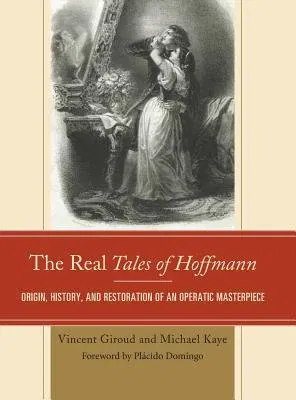Of all operas in the standard repertory, none has had a more complicated
genesis and textual history than Offenbach's Tales of Hoffmann. Based on
a highly successful 1851 play inspired by the short stories by the
German Romantic writer E.T.A. Hoffmann, the work occupied the last
decade of Offenbach's life. When he died in October 1880, the work was
being rehearsed at the Opéra-Comique. At once cut and rearranged, the
work was performed from the start in versions that ignored the
composer's final intentions. Only a few decades ago, when previously
unavailable manuscripts came to light, it became possible to
reconstitute the score in its real form. Vincent Giroud and Michael
Kaye's The Real 'Tales of Hoffmann' tells the full story for the first
time in English. After discussing how the work of Hoffmann became known
and influential in France, the book includes little-known sources for
the opera, especially the complete Barbier and Carré play, in French and
English. It describes the genesis of the opera. The annotated libretto
is published in full, with the variants, for the two versions of the
opera: with spoken dialogue or recitatives. Essays explain what was done
to the opera after Offenbach's death, from the 1881 Opéra-Comique
production to more recent restoration attempts. There is also a survey
of Les contes d'Hoffmann in performance from the 1970s to the present,
and supplementary information, including discography, filmography, and
videography. The Real 'Tales of Hoffmann' is intended to appeal to
anyone interested in the work, specialists or non-specialists.
Audiences, musicologists and students of French opera and opéra-comique
will find it of particular interest, as will opera houses, conductors,
singers, directors, and dramaturgs involved in performances of the
opera.

